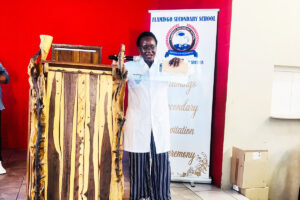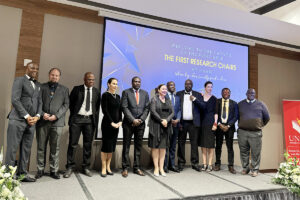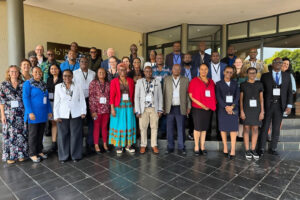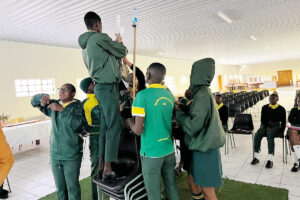The Midwifery Department in the School of Nursing & Public Health, University of Namibia (UNAM), has joined forces with Idaho State University (ISU) in a pioneering initiative aimed at reducing maternal and neonatal mortality rates in Namibia. This partnership is poised to bring advanced training and modern equipment to the country, addressing critical gaps in maternity care.
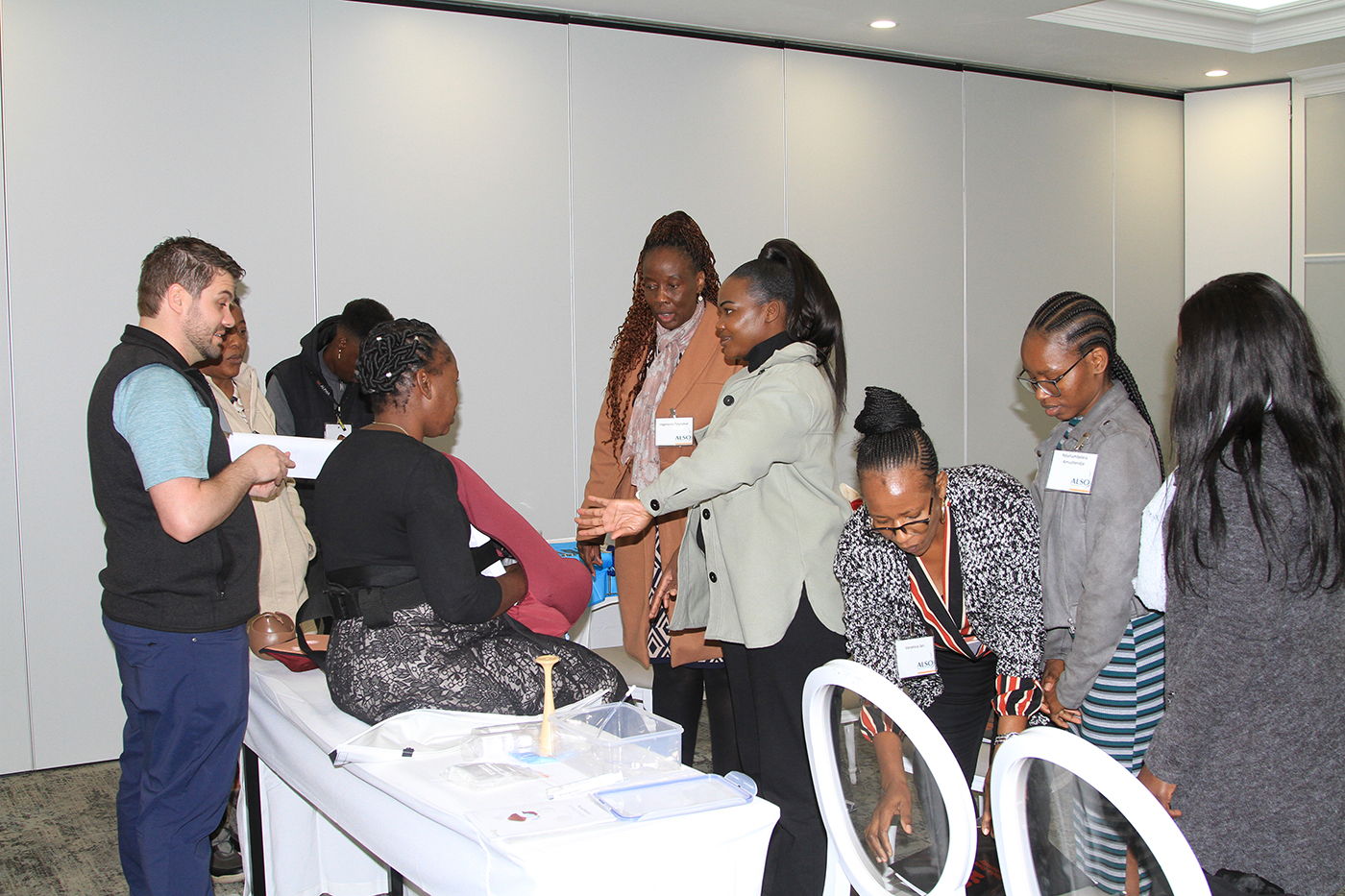
Through this collaboration, healthcare providers were trained in Advanced Life Support in Obstetrics (ALSO) and Helping Baby Breathe (HBB), targeting the troubling maternal mortality rate of 195 per 100,000 and neonatal mortality rate of 20 per 1,000. These figures fall short of the Sustainable Development Goal (SDG) 3 targets, which aim to reduce maternal deaths to fewer than 70 per 100,000 and neonatal deaths to less than 12 per 1,000 by 2030.
The urgency of this initiative is underscored by a 2022 report from the Ministry of Health and Social Services (MoHSS), which revealed that 55% of maternal deaths between 2018 and 2021 were due to inadequate expertise among maternity care providers. “The introduction of the ALSO programme in Namibia is a monumental step towards empowering our midwives with the necessary skills to manage complex obstetric emergencies,” said Ms. Ingenesia Tjiurutue, Head of the Midwifery Department.
A first for Namibia: Advanced Life Support in Obstetrics
The collaboration brought ISU’s expertise, that featured professionals such as Professor Jonathan Cree, Professor David Hachey, Doctor Logan Anderson, and Doctor Kathleen Bartczak, to Namibia for the first time. The training aligns also with the World Health Organisation (WHO) Roadmap to Combat Postpartum Haemorrhage (PPH) from 2023 to 2030, which has been the leading direct cause of maternal deaths in the country.
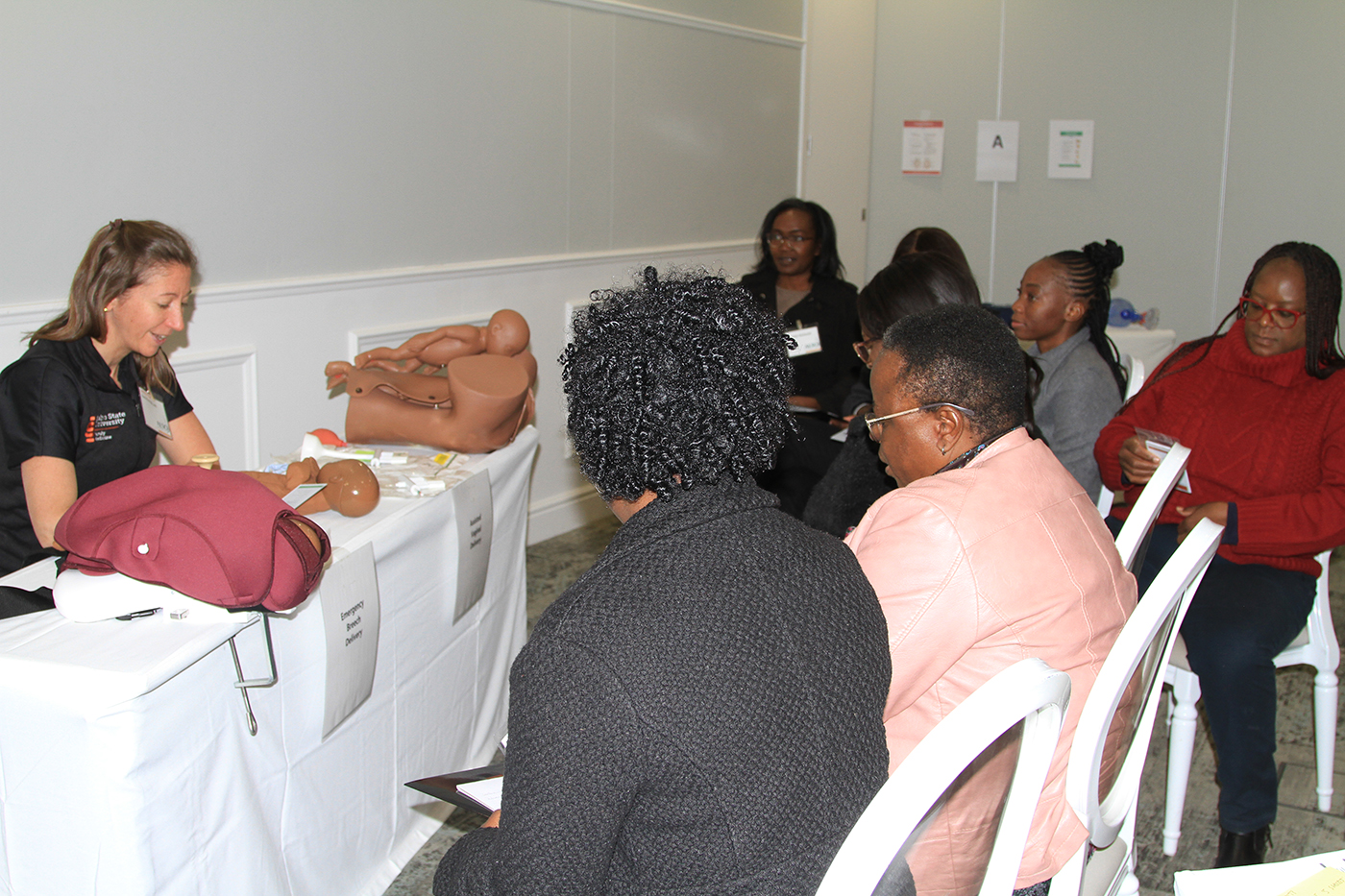
Professor Louise Pretorius, Associate Dean of the School of Nursing & Public Health, highlighted the significance of this collaboration: “This partnership is not just about training; it is about building capacity within our own institutions so that we can continue this vital work independently in the future.”
The training sessions took place over two weeks in June 2024. The first cohort included staff from the Midwifery Department and advanced midwives from the Class of 2023, with ISU funding their travel and accommodation. The Executive Dean of the Faculty of Health Sciences & Veterinary Medicine, Professor Judith Hall, officially welcomed the delegates on the first day of the training.
The second cohort consisted of the 2024 advanced midwifery students. All participants completed an online ALSO training course before engaging in hands-on sessions, which were designed to allow them to apply and practice their skills in a team-based setting. The training covered various topics such as complicated obstetric case studies, management of shoulder dystocia, perineal tear suturing, vaginal breech delivery, vacuum extraction, postpartum haemorrhage, maternal resuscitation, and neonatal resuscitation skills through practical exercises.
Midwifery Department receives modern simulation equipment
In addition to the training, ISU donated modern simulation equipment valued at N$ 344,619.00 (USD$18,585.50) to the Midwifery Department. “The new simulation models are a game-changer for our training programmes, enabling our students and practicing midwives to hone their skills in a controlled, safe environment,” said Ms. Helena Nuumbosho, Training Focal Person & Lecturer for Advanced Midwifery & Neonatal Nursing Care.
The initiative concluded with the presentation of certificates and the official handover of the simulation equipment. Prof. Pretorius and Ms. Tjiurutue received the equipment on behalf of the department, marking the beginning of a new chapter in midwifery education at UNAM, in the presence of Ms. Nuumbosho and Ms. Lillian Masule, Clinical Unit Coordinator.
This partnership between UNAM and ISU is set to make a profound impact on maternal and neonatal health outcomes in Namibia, providing crucial training and resources to those on the frontlines of care. It also underscores the importance of international partnerships in addressing global health challenges and ensuring that healthcare providers in Namibia are equipped with the best tools and knowledge to save lives.


